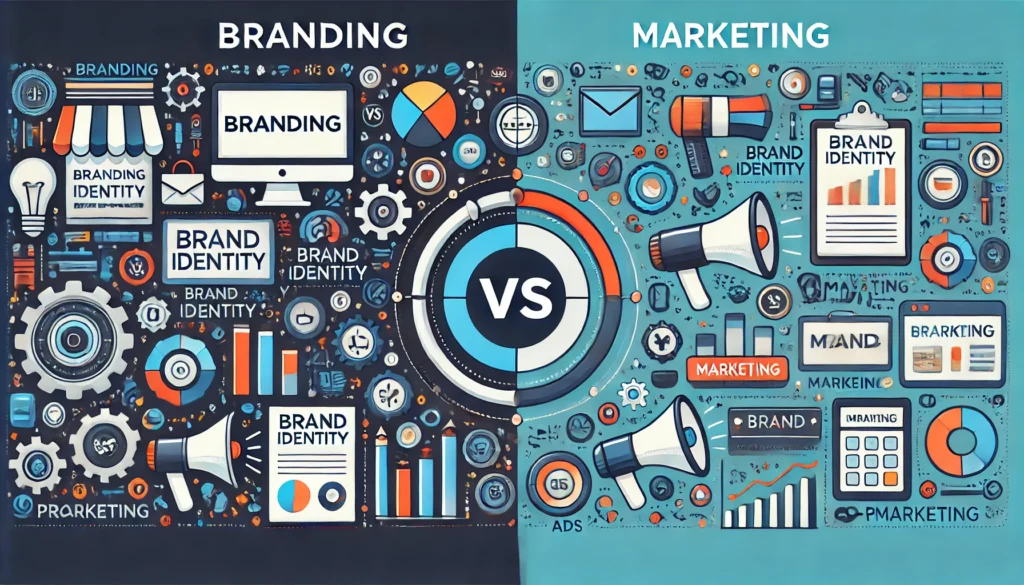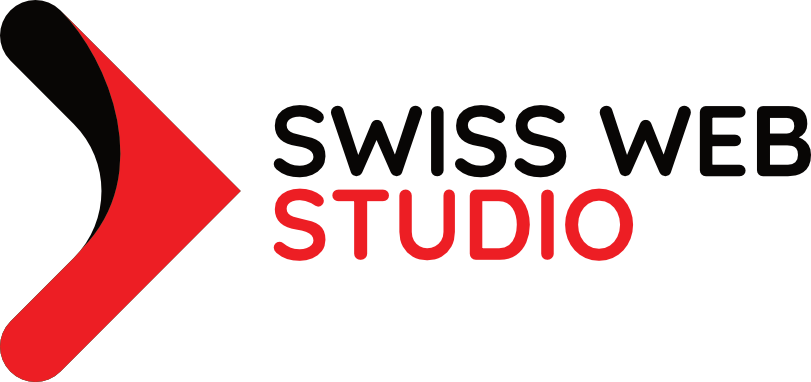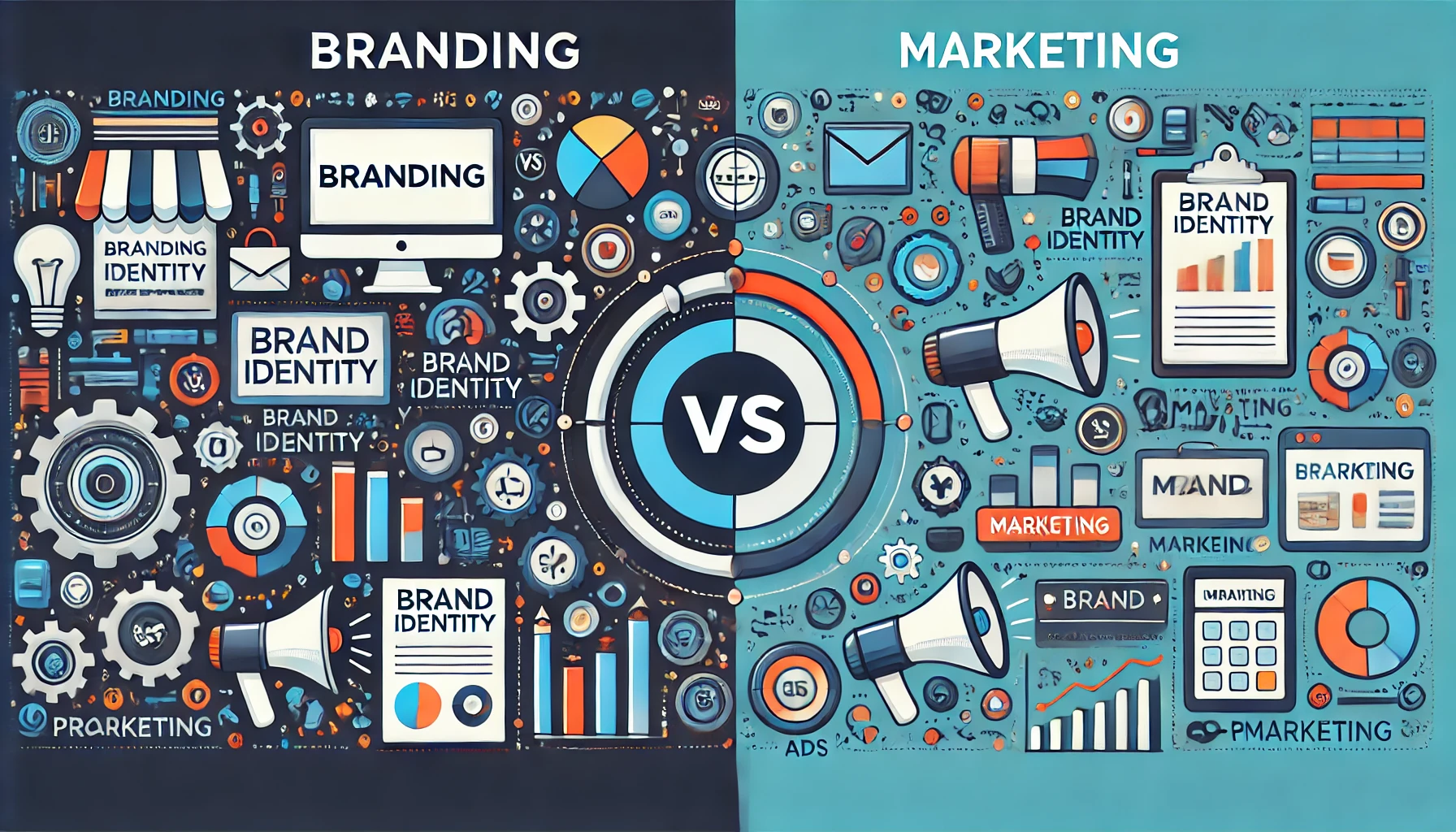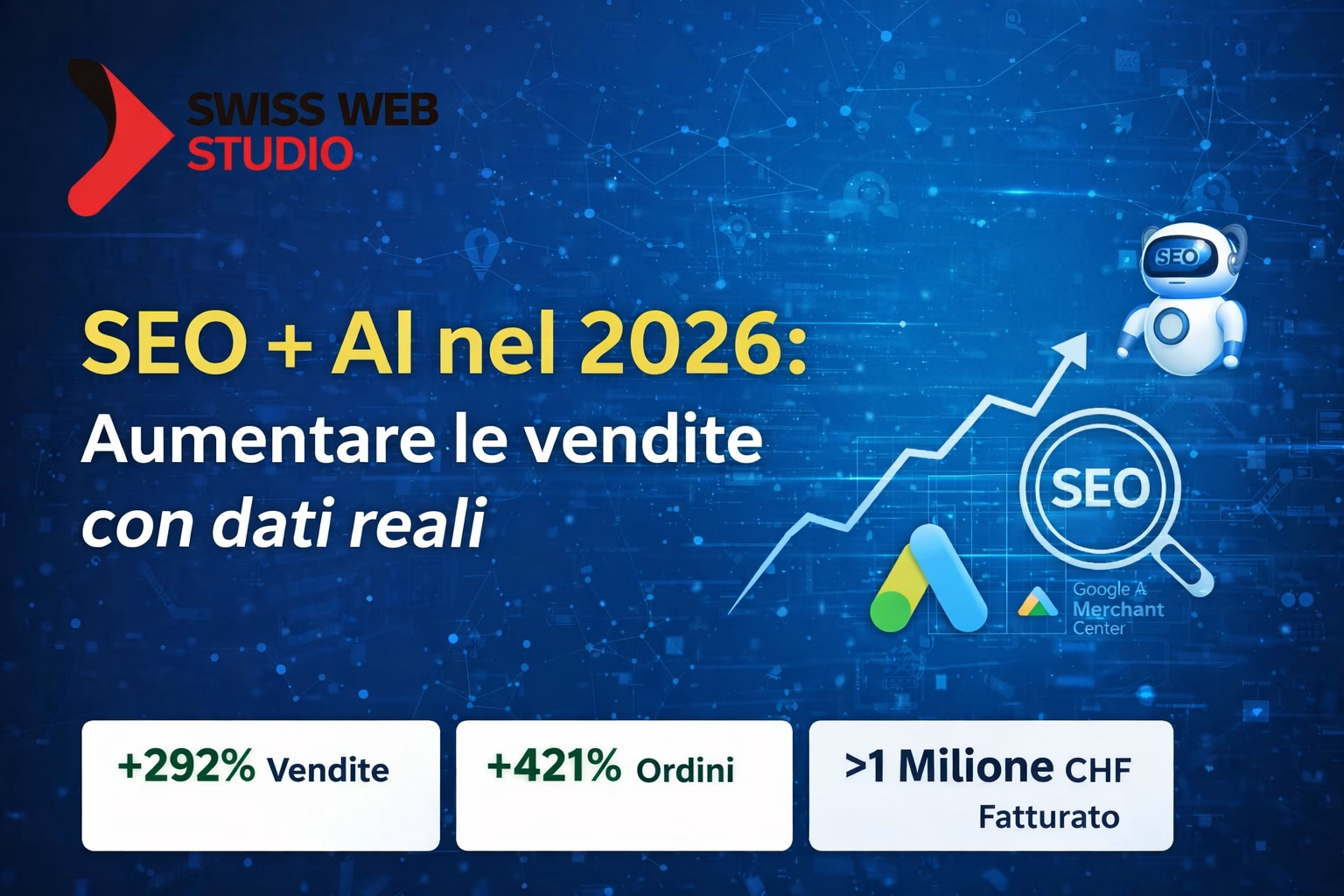In the business world, branding and marketing are often talked about as if they were the same thing. However, although they are closely related, they are two distinct concepts that play specific and complementary roles in a company’s growth and reputation. Understanding the difference between branding and marketing is critical to building an effective business strategy.
What is Branding?
Branding is the process by which a company creates a unique and recognizable identity for itself and its products or services. It is not just a logo or slogan, but how a company wants to be perceived by the public. Branding defines who you are as a company and what you stand for, and it is the common thread that guides all your communications.
Main features of Branding:
- Corporate Identity: Branding establishes brand identity and values. It includes the company name, logo, colors, messages and mission.
- Emotions and Perception: Branding is very much related to the emotions the brand evokes in consumers. It is how the public perceives the company, product or service.
- Loyalty and Trust: Strong branding creates loyalty and trust in consumers. When a customer becomes attached to a brand, they tend to remain loyal over time, preferring its products over those of its competitors.
To learn more about how Swiss Web Studio can help you build a strong and recognizable brand, visit our page on our branding and web design services.
What is Marketing?
Marketing is the set of activities that a company uses to promote and sell its products or services. Marketing is the tool through which a company communicates its value to potential customers, leveraging different channels such as advertising, social media, email, SEO campaigns and more.
Key Features of Marketing:
- Promotion and Sales: Marketing focuses on getting the company’s products or services in front of the public, generating interest and sales.
- Short-Term Strategies: Marketing often has short-term goals, such as boosting sales or increasing traffic to a website in a defined period.
- Variety of Channels: Marketing uses a variety of promotion channels, such as online advertising, Google Ads campaigns, SEO, social media marketing, e-mail marketing, and more.
If you would like advice on how to improve your marketing strategy, visit our section on digital marketing solutions.
The Main Differences between Branding and Marketing
1. Focus on Emotions vs. Actions
- Branding: Focuses on building an identity and an emotional connection with your audience. It defines who you are and what you stand for.
- Marketing: Has a more practical and tangible focus. It focuses on actions and tactics to get the product or service in front of consumers.
2. Timing and Longevity
- Branding: It is a long-term process. Branding builds a company’s reputation and image over time. It is enduring and must be maintained and updated continuously.
- Marketing: It is often oriented toward short- or medium-term results, such as advertising campaigns, promotions, or new product launches. It is cyclical and changes according to market strategies.
3. Identity vs. Sales Tool
- Branding: Defines a company’s identity, establishing its roots in the market and determining how customers should perceive it.
- Marketing: It is a sales tool that helps promote a company’s products or services. Without marketing, it is difficult to reach customers, even with strong branding.
4. Loyalty vs. Lead Generation
- Branding: It builds an emotional relationship and long-term loyalty with customers. It is why customers choose your product over your competitors’, even if they offer similar products.
- Marketing: Focuses on generating leads and converting these leads into sales. It is the method of attracting new customers to the company.

How Do Branding and Marketing Work Together?
Branding and marketing do not work independently; rather, they work together synergistically. Marketing without good branding may seem hollow, while strong branding without a good marketing strategy may not reach the desired audience.
Here’s how they collaborate:
- Branding creates the company’s image and establishes a solid foundation of values and identity.
- Marketing uses branding to promote products or services to the public and drive business results.
In other words, branding creates the reason why customers should trust your company, while marketing informs customers about what you offer and motivates them to action.
Find out how we can help you effectively integrate branding and marketing into your business. Request a free quote to learn about our tailored solutions.
Conclusion
While branding builds your corporate identity and helps you stand out from the competition, marketing allows you to communicate that identity and promote your products or services. Both are essential to the long-term success of any business, and they work in tandem to create a complete customer experience.
Investing in strong branding helps build long-term relationships, while marketing is necessary to bring those customers to your door. Together, branding and marketing form the basis of a winning business strategy.












